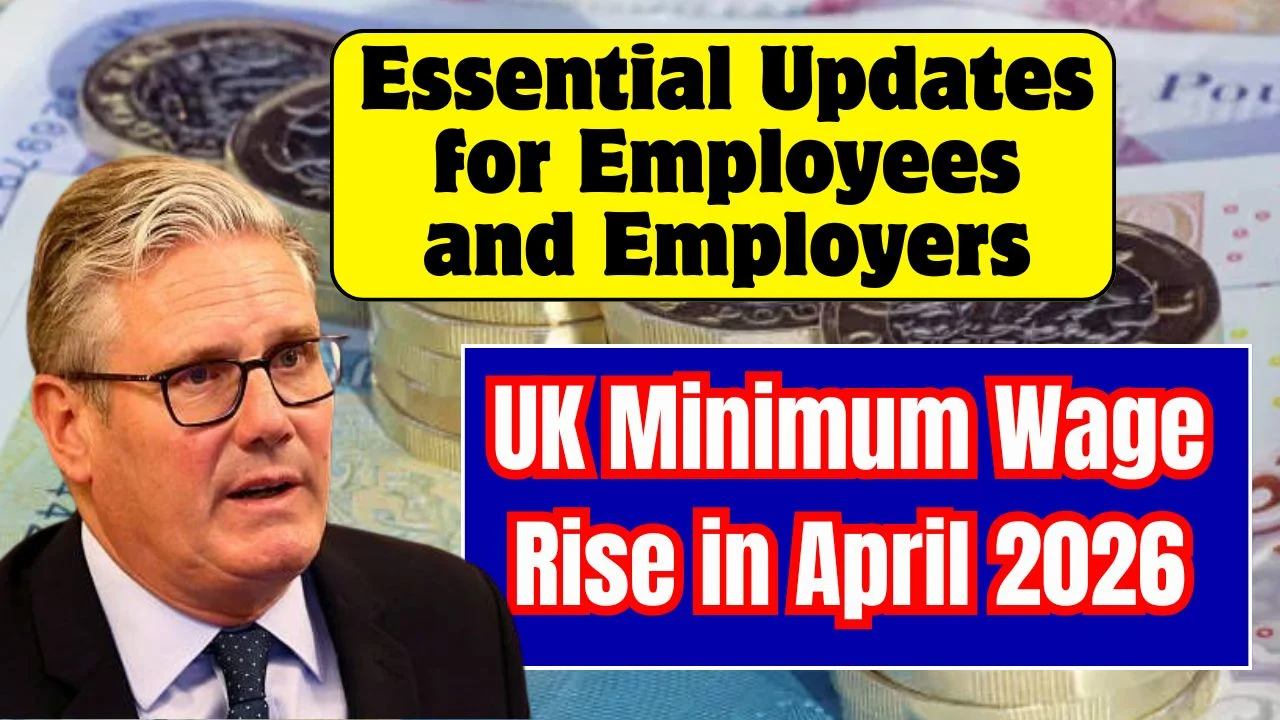I’ve been diving into all the latest on UK Minimum Wage 2026, and the coming changes look significant. Workers and businesses alike will feel the effects, so it’s worth understanding what’s ahead. In this post, I’ll walk you through projections, impacts, and what both employees and employers should start doing now.
Here in the second paragraph I’ll use UK Minimum Wage 2026 again while laying out the essentials: the Low Pay Commission currently estimates a 4.1 % rise, bringing the National Living Wage (for those aged 21+) from £12.21 to about £12.71 from April 2026. But that number isn’t set in stone there’s a plausible range of £12.55 to £12.86 depending on economic conditions.
What the UK Minimum Wage 2026 Means for You
The proposed changes to the UK Minimum Wage 2026 aren’t just about a few extra pennies per hour. They signal a wider shift in how pay is structured across the country. If the projected rise to £12.71 goes through, many full-time workers could see a noticeable increase in their monthly take-home pay. For those aged 18–20, there’s also a strong chance that the current wage gap between age bands will start to close. This change could improve financial independence for younger workers while requiring businesses to rethink staffing budgets and pay strategies. Everyone involved needs to be ready.
UK Minimum Wage 2026: What the Projections Say
Below is a quick overview table showing the current and projected rates and related changes:
| Metric | Current (April 2025) | Projected (April 2026) |
| National Living Wage (age 21+) | £12.21 | ~£12.71 |
| Projected increase | ~4.1 % | |
| Range of possible rates | £12.55 to £12.86 | |
| 18–20 year old rate | £10.00 | Could converge toward adult rate |
| Decision timeline | LPC advice in autumn | Recommendation by Oct 2025, formal announcement thereafter |
Forecasted Increase & Underlying Drivers
The heart of the debate is whether UK Minimum Wage 2026 should land at that £12.71 mark. The Low Pay Commission’s central estimate is exactly that: a 4.1 % increase. They justify this based on stronger-than-expected wage inflation so far average earnings growth earlier in 2025 was about 5.1 % year-on-year.
However, they stress this figure is indicative, not locked in. If wages keep rising faster, the rate could trend higher within the £12.55 to £12.86 range. On the flip side, if the economy weakens, it may cap how aggressive the rise can be.
The government’s remit to the LPC also plays a role. They want to maintain the National Living Wage at around two-thirds of median earnings while weighing competitiveness, inflation, and business viability.
Age‑Band Reform & Pay Equality
One of the more-talked-about shifts for UK Minimum Wage 2026 is pushing to eliminate or reduce the different minimum wage rates by age. Currently, 18–20 year olds receive £10.00 while those 21+ get £12.21.
There’s strong pressure to align those younger rates with the adult rate over time. If that happens, 18–20 year olds may see steeper increases than now projected under the current structure. That would mean bigger wage bills for employers.
Impact on Employers & Business Strategy
Rising Costs & Budget Pressure
When UK Minimum Wage 2026 climbs, payroll costs go up immediately. Sectors with tight margins retail, hospitality, care are especially vulnerable. Businesses will need to recalculate labor costs, pricing strategies, and operational efficiency.
Beyond base wages, employers also incur increased national insurance and pension/benefit contributions tied to pay levels. All these stack up.
Retention, Morale & Productivity
A higher wage floor can improve employee morale, reduce turnover, and attract better talent. That benefit sometimes offsets cost increases. Some businesses might invest in training or productivity improvements to spread the cost.
Compliance & System Readiness
Any changes in UK Minimum Wage 2026 require timely updates to payroll systems, HR practices and contracts. Employers must avoid underpaying by mistake, as legal penalties follow. Businesses should audit their systems now to ensure readiness.
What Employees Should Watch & Do
- If the increase to £12.71 (or something near it) holds, many people working 21+ will see a real boost in take‑home pay
- For younger workers, the potential convergence with adult rates could be even more beneficial
- Talk to your HR, keep an eye on government updates after October 2025, and understand whether any back pay or contract adjustments may apply
- Watch how your employer adapts staffing patterns, hours, or role definitions may shift in response
Next Steps & Timeline
- The Low Pay Commission compiles evidence and delivers its recommendation by October 2025
- The government will formally decide and announce the rate change, usually in the Autumn or Winter prior to April 2026
- Keep an eye on public consultations, LPC drafts, and statements those are chances to engage or respond
Final Words
If you found this helpful, feel free to comment or share your thoughts. I can also create deep dives comparing these changes with other countries’ wage policies or help with business budgeting tools. Just say the word!
FAQs
Not guaranteed it’s the central estimate. The eventual rate could vary within the projected £12.55 to £12.86 range depending on economic trends.
The Low Pay Commission will recommend a rate in October 2025, and the government usually announces the final decision shortly afterward.
Yes and if reforms go through, their rate may approach or match the adult rate, narrowing the gap.
Review current payrolls, model higher wage scenarios, update systems and inform staff. Early planning helps avoid shocks.
In theory yes especially in tighter sectors but evidence is mixed. Many firms adapt via efficiency improvements rather than cutting staff outright.







